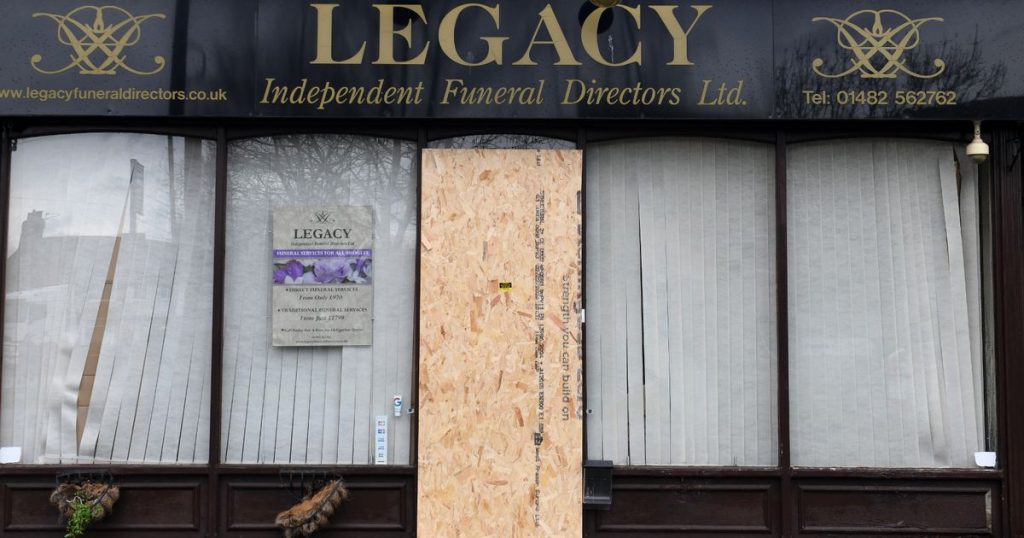The end-of-life industry has come under scrutiny after a scandal involving Legacy Funeral Directors in Hull, where 35 bodies and unidentified human ashes were discovered. Concerns over the industry have been heightened as adverts for cremations and funerals flood daytime TV. Paul Routledge describes these adverts as resembling money-making schemes, targeting vulnerable elderly individuals and their families. The scandal in Hull has raised questions about the legitimacy of funeral services.
Recent arrests in connection with the Legacy Funeral Directors scandal have shed light on potential crimes such as fraud and improper burial. Police have conducted further investigations into other funeral directors in places like Didcot and Wantage, prompting closures of these businesses during the inquiry. The wider issue of predatory advertising targeting the elderly through TV commercials for funeral services has caused distress in many households. A Care2 petition has been launched calling for the halt of such advertisements, with signatories expressing concerns over the impact these ads have on mental health.
The possibility of second funerals being necessary for some families due to the irregularities at Legacy Funeral Directors reveals the extent of the scandal. The presence of unscrupulous practices within the end-of-life industry has highlighted the need for stricter regulations. Currently, anyone can set up as a funeral director, leading to a free-for-all environment that prioritizes profit over ethical standards. Routledge suggests the urgent need for an independent regulator appointed by the government to oversee funeral services and prevent exploitation.
The discovery of bodies and ashes at Legacy Funeral Directors raises alarming questions about the treatment of deceased individuals and the integrity of funeral services. The arrests made in connection to the scandal indicate a potential exploitation of grieving families and financial misconduct within the industry. The carelessness and lack of oversight in the end-of-life sector have sparked a public outcry calling for stricter regulations and ethical practices. The distress caused by insensitive funeral advertisements only adds to the urgency of reform within the industry.
The petitions and public outcry in response to the funeral industry scandals and exploitative advertising suggest a need for immediate action to protect vulnerable individuals and uphold ethical standards. The stories emerging from Hull and other locations underscore the importance of transparency and accountability in handling end-of-life services. By addressing the systemic issues in the industry and implementing regulatory measures, the authorities can prevent future scandals and restore trust in funeral services. The ongoing investigations and public discourse surrounding these incidents highlight the significance of protecting the dignity and wellbeing of individuals in their final rites.


